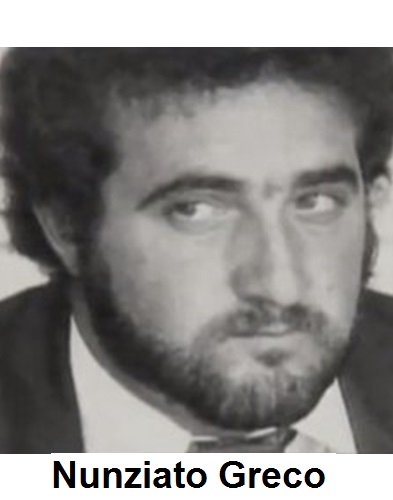
Nunziato ‘Norm’ Greco was last seen leaving his family home in Windsor, NSW, in the company of a person or persons who arrived in a vehicle at 11pm. He was reported missing by his wife, and there are grave concerns for his welfare as he has not contacted his family or children since this time.
If you have any information that may assist police in locating Nunziato, please contact Crime Stoppers on 1800 333 000.
By Terry Jones in Griffith, The Age, May 7, 1985
A man identified in the Woodward drugs Royal Commission as the
builder of Griffth's "grass castles" is missing, believed to have been murdered.
Homicide squad detectives, who visited Griffith for more than a
week, questioning friends and associates of Nunzio "Norm Greco, are satisfied
that he is dead.
Mr Justice Woodward, who questioned Greco about the elaborate
building work he did for drug traders in Griffith, reported in 1979 that Greco
was someone who "may have been viewed as expendable by the organisation"
involved in the production and distribution of marijuana in the Griffith area.
Friends of Greco in Griffith say that if he was still alive, he
would have been in touch with his wife, Mrs Ann Greco, who lives in Windsor,
near Sydney.
Greco, 34, answered a knock at the door of his Windsor home on
Tuesday, 7 January. He was seen in conversation with two men before he walked
away from the house with them. He has not been heard of since.
In Griffith, his elderly father, Mr Salvatore Greco, is convinced
that his son has been killed.
Because it was not unusual for Greco to be away for some days,
Mrs Greco did not report her husband missing for more than a month, by which
time the trail was cold.
A former Riverina detective, Senior Constable Kevin Raue, of the
Sydney homicide squad, led the police team which spent almost a week in
Griffith.
Senior Constable Raue said there appeared to be no doubt that
Greco had been killed, and police were treating his disappearance as homicide.
Greco was a key witness when the Woodward commission sat in
Griffith. His flamboyant appearance made him a recognisable figure, but he later
felt sour about the publicity he received. Clean shaven for his early commission
evidence, he later grew a thick beard. A bricklayer, he also challenged local
press for "the bad publicity which makes it impossible for me to get work."
The commission began to question him closely about his dealings
with Leonardo Gambacorta who had been convicted of growing a $35 million
marijuana crop at Coleambally. Greco was later charged and convicted of driving
a van found to contain a large amount of marijuana.
Mr. Justice Woodward said: "In the few years immediately
preceding my appointment a number of persons had acquired
premises which the people of the town of Griffith had come to
refer to as "grass castles', the name being derived from the vernacular 'grass'
for marijuana."
In his report, Judge Woodward concluded that there existed in
Griffith a secret organisation which was probably a cell of the "Societe
Honorata", and among those person were the owners of "grass castles".
Leonardo Gambacorta was the owner of the Coleambally marijuana
crop. He was sentenced to jail for five years with a non parole period of two
years. His residence in Crimson Avenue was built by Greco, and completed before
Gambacorta's release.